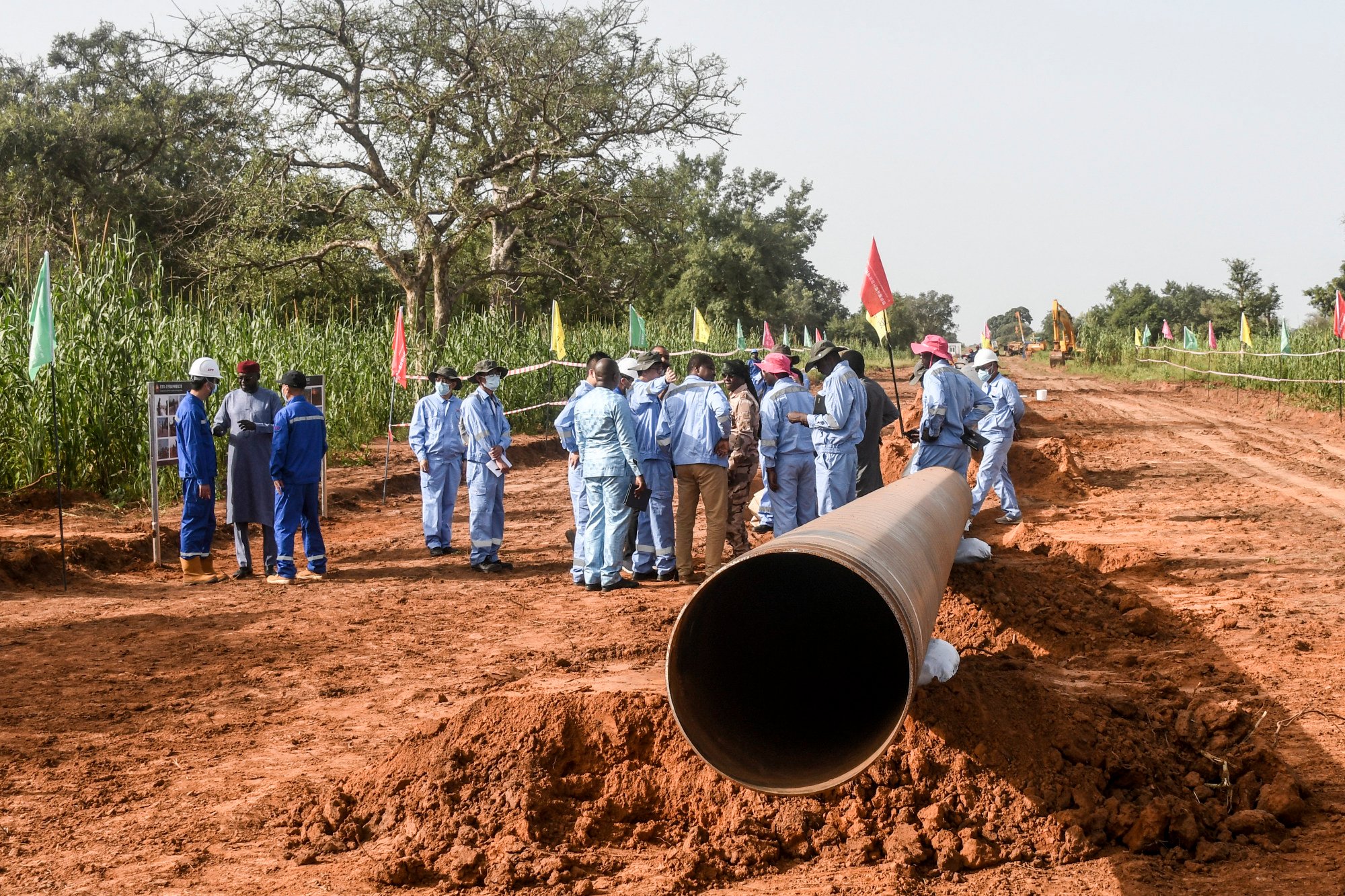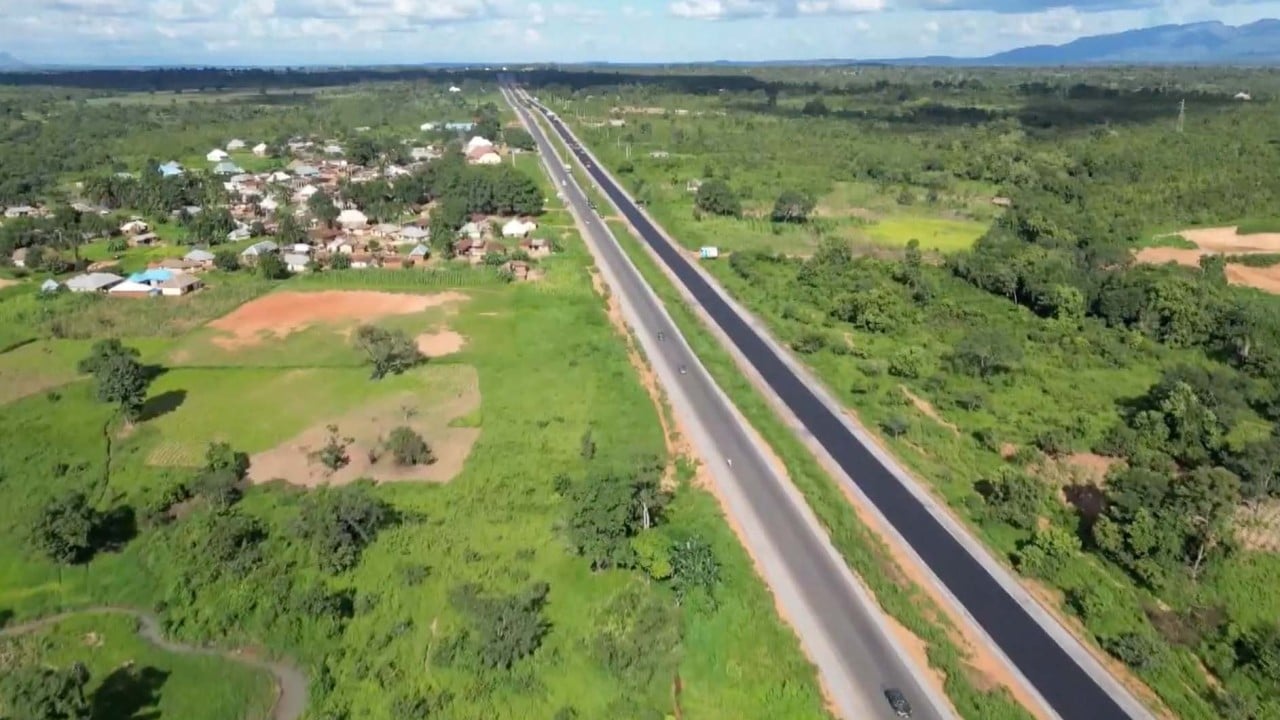
In Niger, China’s path to stability may diverge from Western security priorities
- After July’s military coup in the West African country, observers are watching to see who Beijing works with to help restore stability in the region
- China has vast economic interests in the Sahel region, which is increasingly ruled by military regimes
After the July 26 coup, Niger became the latest country in the unstable region to join a list of other nations now under military rule – including Mali, Burkina Faso, Chad and Sudan.
What the Niger coup means for China’s presence in the Sahel
China, which maintains an official policy of not meddling in the internal affairs of other nations, could opt to bankroll regional security forces, the African Union or UN-led initiatives to cure instability in the Sahel region, according to observers.
“I hope the personal safety of President [Mohamed] Bazoum, a friend of China, could be assured,” Wu Peng, China’s director general of the Department of African Affairs of the Foreign Ministry, said on the social media platform X, formerly known as Twitter, on Wednesday.
Wu said he had noted the statements by the United Nations and the Economic Community of West African States (ECOWAS), a regional political and economic bloc of 15 countries, that have condemned Bazoum’s removal .
ECOWAS has given the junta until Sunday to reinstate the democratically elected president.
China hopes the parties concerned will act in the fundamental interest of the country and its people, and resolve disputes peacefully through dialogue to see order restored and stability and development safeguarded, Wu said.
“I believe Niger and regional countries have the wisdom and capacity to seek a political resolution,” he added.
In the coming weeks, the UN peacekeeping mission in Mali, where China has hundreds of troops, will start leaving following a UN resolution in June, a decision that came after the ruling military in the capital of Bamako pushed for the removal of the international forces.
Adding to the region’s security challenges, the anti-terrorism G5 Sahel Joint Force – formed in 2017 by Burkina Faso, Chad, Mali, Mauritania and Niger, and bankrolled by the West and China – has largely been unsuccessful.
“This was to happen within the framework of the G5 Sahel, but it could not, because the G5 Sahel had trouble taking off, and when it finally did, there were coups in Mali and then in Burkina Faso that rendered it moot,” said Rahmane Idrissa, a senior researcher at the African Studies Centre at Leiden University in the Netherlands.
To function properly, he said the G5 Sahel needed an effective collective security strategy, reforms in the security sector, and development initiatives.
In 2019, China contributed US$45.6 million to the G5 Joint Force’s security and counterterrorism operations.
Nevertheless, the void is being filled by the Wagner Group, a Russian mercenary company, which has been accused of massacres in Mali, and elsewhere in the Sahel and central Africa.
Alex Vines, head of the Africa programme at the London-based Chatham House think tank, said that with the drawdown of the UN in Mali, there is concern that West Africa’s security should not be subcontracted to private foreign militaries.
“ECOWAS is seeking to establish a regional army to respond to counterterrorism threats and coups,” he said.
Although the intent was for the region to fund such a force, equipment and additional training would be sought from international partners, including China, Vines said.
ECOWAS is also looking for predictable funding, including from UN contributions, something in which China can promote through the UN Security Council, he said.
China has extensive economic interests in the Sahel region, which is rich in minerals such as uranium, gold, iron ore, manganese and oil.
Chinese companies have also invested in Mali’s lithium mining and Mauritania’s fishing industries. China National Petroleum Company (CNPC) is a major investor in Chad’s petroleum industry.

Zhou Yuyuan, a senior fellow and deputy director at the Centre for West Asian and African Studies at the Shanghai Institutes for International Studies, said China would continue to support peace efforts led by the United Nations, and has pledged to provide financial support and equipment to the African Union and the G5 Sahel Joint Force.
While Beijing had increased its peace and security cooperation with African countries, its security role in Africa was still weak and could be described as supportive or complementary, Zhou said.
“Facing the rising security needs of the Sahel region, I think China may continue to support the United Nations, the African Union and regional security forces to play a major role in solving the security threats, and even possibly support France and the European Union to play active roles,” he said.
But while Washington preferred to work with democratic leaders, Shinn said Beijing was willing to work with either democratic or authoritarian governments to maintain stability.
China likely to take bigger role in peacekeeping missions in West Africa
China has never supported active military engagement in Africa, and that is not likely to change, Shinn said. “China provided several hundred peacekeepers to the UN peacekeeping operation in Mali, but they were involved in defensive operations and, in any event, will soon be leaving with the ending of the UN mission there,” he said, adding that Beijing was unlikely to fill the gap left by France or the US.
“Even if French and American forces are forced out of the area, it is unlikely that China will want to fill the void in this increasingly treacherous environment.”
Benjamin Barton, an associate professor at the University of Nottingham’s Malaysia campus, said China’s active presence in the security dynamics of the Sahel region would appear to be limited and restricted to a diplomatic role.
“Unlike France, Beijing is unlikely to lead or form part of a spontaneous military coalition to restore stability,” Barton said.
China’s main geopolitical interest in the region is the status quo and further curating its image and budding influence, he said.
“I would foresee China possibly playing a diplomatic role here, but given how critical this situation is for the French state, China may want to take a back seat and focus more on matters of direct concern, such as evacuating its nationals and seeking ways of protecting Chinese investments in case the situation escalates,” he said.



